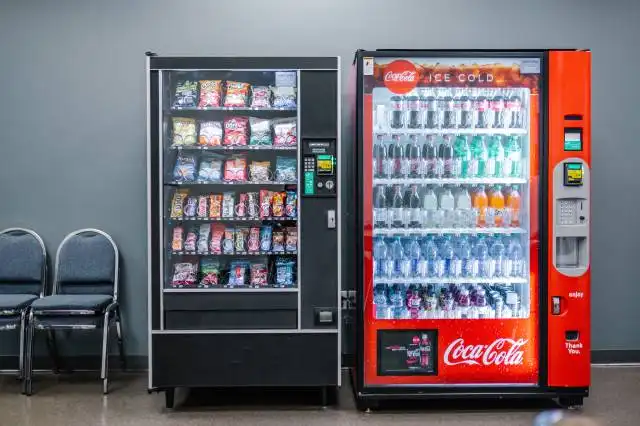Start a Flavor Company
Unleashing Your Inner Willy Wonka: Creating a World of Flavours
| Updated


FLAVOR COMPANY
Venture into the delightful and adventurous realm of a Flavor Company; a business that explores, creates, and sells various food and beverage flavorings. Imagine becoming the Willy Wonka of the adult world, designing tantalizing tastes that could put a zip into a morning coffee or transform a plain cookie into a gourmet indulgence. From fiery hot chilis to cooling mint, your exotic flavor concoctions can unlock a treasure of taste indulgence in kitchens worldwide. Turn your passion for flavor into profitable reality as you set your taste buds on a thrilling entrepreneurial journey.
Jump to Business Plan
RELATED BUSINESS IDEAS
Browse ALL Food & Beverage Entrepreneurship Business Ideas
Discover Your Perfect Domain
Unlock the door to your online success with our hand-picked selection of premium domain names. Whether you're starting a new venture or rebranding an existing one, the right domain can set the tone for your digital presence. Browse through our curated list, each with its unique potential to enhance your brand's visibility and credibility.
FLAVOR MINI BUSINESS PLAN
This a quick reality check to help you identify the strengths and weaknesses of your business concept before you dive in.
Business Idea: Flavor Company
A company that creates and sells unique, proprietary flavors to food and beverage manufacturers.
Expected Percent Margins:
- Gross Margin: Approximately 60-70%
- Net Profit Margin: Approximately 20-30%
Earnings Expectations:
- Daily Earnings: Approximately $500 - $1,000
- Weekly Earnings: Approximately $3,500 - $7,000
- Monthly Earnings: Approximately $14,000 - $30,000
- Annual Earnings: Approximately $168,000 - $360,000
Actions to Hit Those Numbers:
Product Development & Quality Control:
- Invest in R&D: Invest in research and development to create unique, high-quality flavors.
- Quality Control: Implement strict quality control measures to maintain consistency.
Marketing and Customer Acquisition:
- B2B Marketing: Implement strong B2B marketing strategies to attract food and beverage manufacturers.
- Trade Shows Attendance: Regularly attend trade shows and industry events to showcase your flavors and network with potential customers.
Sales and Customer Experience:
- Customer Service: Offer excellent customer service to attract and retain customers.
- Sample Distribution: Provide samples to potential customers for testing and evaluation.
Cost Control:
- Raw Material Acquisition: Develop relationships with reliable and cost-effective suppliers of raw materials.
- Production Efficiency: Invest in efficient production processes to lower costs.
Business Operations:
- B2B Sales Strategy: Develop and implement a strong business-to-business (B2B) sales approach.
- Volume Sales: Aim to secure large-volume orders from manufacturers.
These are generalized estimations and can vary depending on location, competitive landscape, and individual business strategies. Always consult with a financial advisor for personalized advice.
NOT WHAT YOU HAD IN MIND? Here are more ideas



Browse ALL Food & Beverage Entrepreneurship Business Ideas
Grab Your Business Website Name
Before you get caught up in the whirlwind of setting up your business, invest in a domain name. It's a small but significant step that lays the foundation for your brand and makes it easier for customers to find and trust you. Just like you wouldn't build a house without securing the land first, don't build a business without securing your domain name.
"Why? Can't that wait?" Here's why it shouldn't
Step 1: Determine if Starting a Flavor Company is Right for You
Breakdown of Startup Expenses
Before starting a flavor company, it is important to understand the costs associated with launching the business. This includes the cost of ingredients, equipment, packaging, and marketing. Additionally, it is important to consider the cost of rent for a commercial kitchen, as well as the cost of hiring employees. It is also important to consider the cost of obtaining the necessary permits and licenses. All of these costs should be taken into account before starting a flavor company.
Breakdown of Ongoing Expenses
After the startup costs have been taken into account, it is important to consider the ongoing expenses associated with running a flavor company. This includes the cost of ingredients, packaging, and marketing. Additionally, it is important to consider the cost of rent for a commercial kitchen, as well as the cost of hiring and maintaining employees. Additionally, it is important to consider the cost of obtaining the necessary permits and licenses. All of these costs should be taken into account before starting a flavor company.
Examples of Ways to Make Money
There are a variety of ways to make money with a flavor company. One way is to sell products directly to customers, either online or in a physical store. Additionally, it is possible to partner with restaurants, grocery stores, and other retailers to sell products. It is also possible to create custom flavors for clients, such as restaurants or food manufacturers. Additionally, it is possible to create and sell flavor concentrates, which can be used to make a variety of products. All of these options should be taken into account when starting a flavor company.
Step 2: Name the Business
Choosing a name for your flavor company is an important step in the process of starting a business. It should be memorable and easy to pronounce, as well as relevant to the product or service you are offering. Additionally, it should be unique and stand out from other companies in the same industry. Consider using a combination of words that evoke the flavor of your product, or use a play on words to create a memorable name. Also, make sure to check that the name is not already in use by another company. If it is, you will need to come up with another name.
Registering the Business Name
Once you have chosen a name for your flavor company, you will need to register it with the appropriate government agency. This will ensure that the name is legally protected and that no other company can use it. Depending on the type of business you are starting, you may need to register with the state or federal government. Additionally, you may need to register with the local government in order to obtain a business license. Once you have registered the name, you will be able to use it for all of your business activities.
Step 3: Develop a Business Plan
A business plan is an essential tool for any entrepreneur. It is a roadmap that outlines the goals and objectives of the business, and how they will be achieved. It should include a market analysis, a financial plan, and a marketing plan.
The market analysis should include an overview of the industry, the target market, and the competition. It should also include a SWOT analysis, which stands for Strengths, Weaknesses, Opportunities, and Threats. This analysis will help the entrepreneur identify areas of opportunity and potential risks.
The financial plan should include a budget and a cash flow projection. This will help the entrepreneur understand the startup costs and ongoing expenses associated with the business. It should also include a break-even analysis, which will help the entrepreneur understand when the business will become profitable.
The marketing plan should include a description of the product or service, the pricing strategy, and the promotional strategy. It should also include an analysis of the competition and a description of the competitive advantage. This will help the entrepreneur understand how to differentiate the business from the competition.
Tips for Developing a Business Plan
When developing a business plan, it is important to be as detailed and thorough as possible. The plan should be realistic and achievable. It should also be flexible, as the business environment is constantly changing.
It is also important to be realistic about the timeline. It is important to set realistic goals and timelines for each step of the plan. This will help the entrepreneur stay on track and ensure that the business is successful.
Finally, it is important to seek advice from experts. There are many resources available to entrepreneurs, such as business consultants, mentors, and online resources. These resources can provide valuable advice and guidance to help the entrepreneur develop a successful business plan.
Step 4: Obtain Licenses and Permits
The fourth step in starting a flavor company is to obtain the necessary licenses and permits. Depending on the type of business, the licenses and permits required may vary. For example, if the business is selling food products, then a food license may be required. Additionally, a business license may be required to operate the business. It is important to research the licenses and permits that are required in the area where the business is located.
Cost of Licenses and Permits
The cost of the licenses and permits will vary depending on the type of business and the area in which it is located. It is important to research the cost of the licenses and permits before starting the business. Additionally, it is important to factor in the cost of the licenses and permits when creating the budget for the business.
Where to Obtain Licenses and Permits
The licenses and permits can typically be obtained from the local government office. Additionally, many states have websites that provide information on the licenses and permits that are required for a particular type of business. It is important to research the requirements for the licenses and permits before attempting to obtain them.
Time Frame for Obtaining Licenses and Permits
The time frame for obtaining the licenses and permits will vary depending on the type of business and the area in which it is located. It is important to research the time frame for obtaining the licenses and permits before starting the business. Additionally, it is important to factor in the time frame for obtaining the licenses and permits when creating the timeline for the business.
Step 5: Choose a Location
When deciding on a location for a flavor company, there are several factors to consider. First, it is important to determine the size of the business and the amount of space needed to accommodate the necessary equipment, staff, and customers. It is also important to consider the local regulations and zoning laws that may affect the business. Additionally, the cost of rent and utilities should be taken into account. Finally, the location should be accessible to customers and suppliers.
Benefits of an Online Presence
In addition to a physical location, having an online presence is also beneficial for a flavor company. An online presence allows customers to purchase products from anywhere in the world, and also allows the company to reach a larger customer base. Additionally, having an online presence can help to create brand awareness and increase sales. Furthermore, having an online presence can help to reduce overhead costs associated with a physical location.
Step 6: Obtain Supplies
The sixth step in starting a flavor company is to obtain the necessary supplies. This includes ingredients and packaging materials. It is important to find reliable suppliers that offer high-quality ingredients and packaging materials. It is also important to consider the cost of these supplies and the shipping costs associated with them. When researching suppliers, it is important to read reviews and compare prices. Additionally, it is important to consider the shipping time and the availability of the ingredients and packaging materials.
Equipment
In addition to ingredients and packaging materials, the company will need to obtain the necessary equipment. This includes items such as mixers, blenders, scales, and other tools. It is important to research the different types of equipment available and determine which ones are necessary for the business. Additionally, it is important to consider the cost of the equipment and the cost of maintenance and repair. It is also important to consider the size of the equipment and the space needed to store it.
Licenses and Permits
The company will also need to obtain the necessary licenses and permits. This includes any local, state, or federal permits that are required to operate the business. It is important to research the different types of licenses and permits that are necessary and to make sure that the company is in compliance with all regulations. Additionally, it is important to consider the cost of the licenses and permits and the time it takes to obtain them.
Insurance
Finally, the company will need to obtain the necessary insurance. This includes liability insurance, property insurance, and any other type of insurance that is necessary for the business. It is important to research the different types of insurance available and to make sure that the company is adequately covered. Additionally, it is important to consider the cost of the insurance and the amount of coverage that is provided.
Step 7: Create a Website
Creating an effective website is essential for any business, and a flavor company is no different. It should be easy to navigate, visually appealing, and provide customers with all the information they need to make an informed decision. Here are some tips to consider when creating a website:
- Choose a domain name that reflects the company’s mission and values.
- Use a website builder or hire a web designer to create a visually appealing website.
- Include a section on the website that explains the company’s mission and values.
- Make sure the website is mobile-friendly and easy to navigate.
- Include a section for customer reviews and testimonials.
- Include a section for customers to purchase products.
- Include a blog section to post helpful articles and recipes.
- Include a contact page with a phone number, email address, and physical address.
- Utilize SEO tactics to ensure the website is easily found on search engines.
When creating a website, it is important to make sure that it is visually appealing and easy to navigate. Choosing a domain name that reflects the company’s mission and values is also important. Additionally, the website should include a section that explains the company’s mission and values, as well as a section for customer reviews and testimonials. It should also include a section for customers to purchase products, a blog section to post helpful articles and recipes, and a contact page with a phone number, email address, and physical address. Lastly, it is important to utilize SEO tactics to ensure the website is easily found on search engines. With these tips, a flavor company can create an effective website that will help them reach their target audience.
Step 8: Market the Business
When it comes to marketing the business, there are a few different ways to go about it. One way is to create a website or blog to showcase the company and its products. This can be a great way to reach potential customers and build a following. Additionally, social media can be a great way to get the word out about the business. Creating accounts on platforms like Instagram, Twitter, and Facebook can help to spread the word about the business and its products. Additionally, creating a newsletter or email list can help to keep customers informed about new products and promotions.
Tips for Effective Marketing
When it comes to marketing the business, it is important to be consistent and creative. It is important to create content that is engaging and that will draw people in. Additionally, it is important to be consistent with posts and promotions. This will help to build a following and keep customers engaged. Additionally, it is important to be creative and think outside the box when it comes to marketing. This can help to draw in new customers and keep existing customers interested. Finally, it is important to track the results of marketing efforts to see what is working and what is not. This can help to inform future marketing decisions.
Step 9: Monitor the Business
Monitoring the business is an important step in running a successful flavor company. It is important to track the progress of the business and make sure that it is meeting its goals. There are several ways to monitor the business.
First, it is important to track sales and customer feedback. This will help to identify areas of improvement and areas of success. It is also important to track the financials of the business. This will help to ensure that the business is staying within its budget and that it is meeting its financial goals.
Second, it is important to track the progress of the business’s marketing efforts. This will help to identify which marketing strategies are working and which ones are not. It is also important to track the progress of the business’s product development. This will help to ensure that the business is staying on track with its product development goals.
Third, it is important to track the progress of the business’s customer service efforts. This will help to ensure that the business is providing the best customer service possible. It is also important to track the progress of the business’s operations. This will help to ensure that the business is running smoothly and efficiently.
Finally, it is important to track the progress of the business’s overall growth. This will help to identify areas of improvement and areas of success. Tracking the progress of the business will help to ensure that the business is meeting its goals and staying on track.
EXPLORE MORE CATEGORIES
Browse ALL Business Idea Categories
TAKE THE NEXT STEPS










